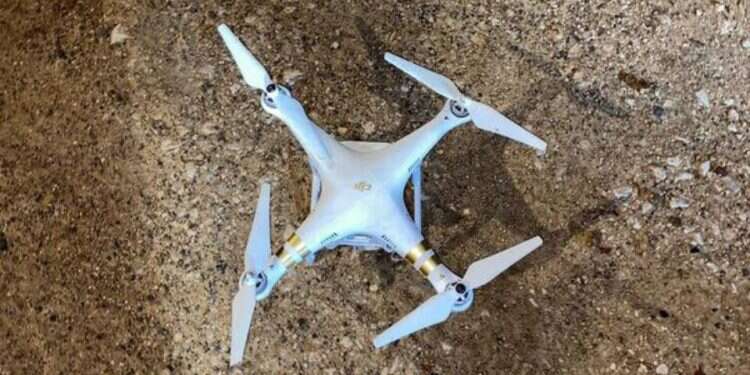The Israeli military on Saturday said it shot down three unmanned aircraft launched by the Lebanese militant group Hezbollah heading toward an area where an Israeli gas platform was recently installed in the Mediterranean Sea.
Follow Israel Hayom on Facebook, Twitter, and Instagram
The launch of the aircraft appeared to be an attempt by Hezbollah to influence US-brokered negotiations between Israel and Lebanon over their maritime border, an area that is rich in natural gas.
Hezbollah issued a statement on Saturday night in which it acknowledged that it "launched three drones of various sizes toward the disputed area near the Karish [natural gas] field on an intelligence-gathering mission. The UAVs completed their mission and delivered the information."
In a statement, the IDF said the aircraft were spotted early on and did not pose an "imminent threat." Nonetheless, the incident drew a stern warning from Israel's caretaker prime minister, Yair Lapid.
"I stand before you at this moment and say to everyone seeking our demise, from Gaza to Tehran, from the shores of Lebanon to Syria: Don't test us," Lapid said in his first address to the nation since taking office on Friday. "Israel knows how to use its strength against every threat, against every enemy."
Israel earlier this month set up a gas rig in the Karish field, which Israel says lies within part of its internationally recognized economic waters. Lebanon has claimed it is in disputed waters.
The US last week said that mediator Amos Hochstein had held conversations with the Lebanese and Israeli sides. "The exchanges were productive and advanced the objective of narrowing differences between the two sides. The United States will remain engaged with parties in the days and weeks ahead," his office said in a statement last week.
The two countries, which have been officially at war since Israel's creation in 1948, both claim some 860 square kilometers (330 square miles) of the Mediterranean Sea. Lebanon hopes to exploit offshore gas reserves as it grapples with the worst economic crisis in its modern history.
On Saturday, Lebanese Prime Minister Najib Mikati told reporters that Lebanon received "encouraging information" regarding the border dispute but refused to comment further saying Beirut is waiting for the "written official response to the suggestions by the Lebanese side."
Subscribe to Israel Hayom's daily newsletter and never miss our top stories!




